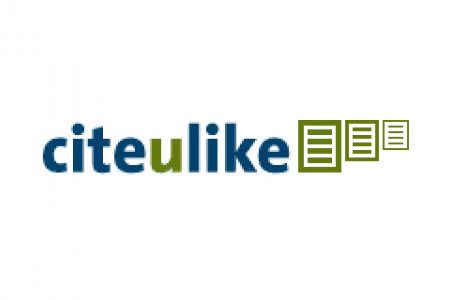Battle of the Reference Managers
What are the differences between Endnote and Zotero/Mendeley? What are the pros and cons for all of them and what should decide your choice for one of them?
What are the differences between Endnote and Zotero/Mendeley? What are the pros and cons for all of them and what should decide your choice for one of them? While trying them all out would seem the best course of action, it isn't exactly practical, what with having to then migrate your data to a new programme several times. And since we can't actually have these reference managers battle it out until there is only one, here are some comparing notes.
EndNote
EndNote is a powerful piece of software with many advanced features and a huge number of citation styles included with the package. If you are working on your dissertation or a research project, EndNote is a great tool when writing and creating citations. However, EndNote's learning curve is noticeably steeper than that of Mendeley and Zotero and to learn to make the most of the program will take time. Additionally, EndNote is a paid programme and a rather pricey one at that. You can use it on university PC's free of charge, but if you want to install it on your own computer you'll have to buy a copy. If you'll be mainly working from your university PC and using it to write and cite, EndNote is a great choice. Unlike Zotero and Mendeley, the version of EndNote supported by Leiden University Libraries (X6) doesn't have any social or sharing components, so creating collaborative libraries or groups isn't possible. However, the most recent version of EndNote (X7) does support these features.
Mendeley
While the basic service is free, Mendeley offers paid subscriptions to gain more storage data and the ability to create more and private groups. However, the storage included with a free account is 2 GB, which is plenty of room for most people. Due to the way it's set-up, Mendeley can not only serve as a reference manager, or collaboration tool, it can also help you discover articles. The software is platform-agnostic and easy to use, with both Mendeley and Zotero allowing you to sync your libraries across your devices. While the service was initially developed to further accessibility and discoverability of research through Open Access, Mendeley was bought by Elsevier in 2013. It's unclear how this will affect the development of the product and its status as very Open Access friendly. Mendeley currently doesn't offer "cite while you write"-integration with Apple-specific software or integration with library systems through EZProxy, which would allow you to search their database and immediately access papers you find through the library database as you can do with Google Scholar for example. However, the latter feature is currently in the works.
Zotero
Like Mendeley, Zotero is free and platform-agnostic. Unlike Mendeley, it is open source and as such takes the notions of privacy and data protection very seriously, allowing you full control over what you share and with whom. Zotero offers unlimited collaborative groups and has upgrade plans for extra storage space available. Extra storage space might well be needed as the free amount is limited to 500MB. While similarly to Mendeley Zotero doesn't offer 'cite while you write'-integration with Apple software, it does offer integration with library systems through EZProxy. Zotero is also the reference managing software embedded in the University Libraries' Virtual Research Environments.
Personal preference will be the deciding factor
When deciding which reference manager to choose, none of these three will be a 'bad' choice, yet one of them might just be a better fit. Think about the environment you'll be using it in and what you need the manager to do. Will you mostly be working solitary and you don't need to collaborate and share your library then EndNote might be perfect, but if you need to work in a research group and want to be able to easily share relevant literature either Mendeley or Zotero would work better. If you'll be working from different computers and locations, Mendeley and Zotero's synchronising functionality might be a deciding factor. What are your colleagues using? Will you be staying with your institution long-term or is your appointment for a specific time frame? All three reference managers allow exporting and importing of reference libraries from other programmes, but the longer you use a specific manager the more time-consuming and complex the transfer of your data will be.
In the end deciding which reference manager will work best for you will come down to personal preference, but it's wise to explore your options and know what exactly you are selecting.
Side-by-side comparisons
You can find some excellent and comprehensive side-by-side comparisons of the different aspects of these reference managers on the following pages:
- Utrecht University (EndNote, Mendeley, Zotero and many, many more)
- University of Wisconsin-Madison (EndNote, Mendeley, Zotero)
- University of North Carolina Health Sciences Library (EndNote, RefWorks, Mendeley, Zotero)
- MIT Libraries (EndNote, Zotero, Mendeley)
- Mendeley (Mendeley, EndNote, RefWorks, Zotero, Papers)





